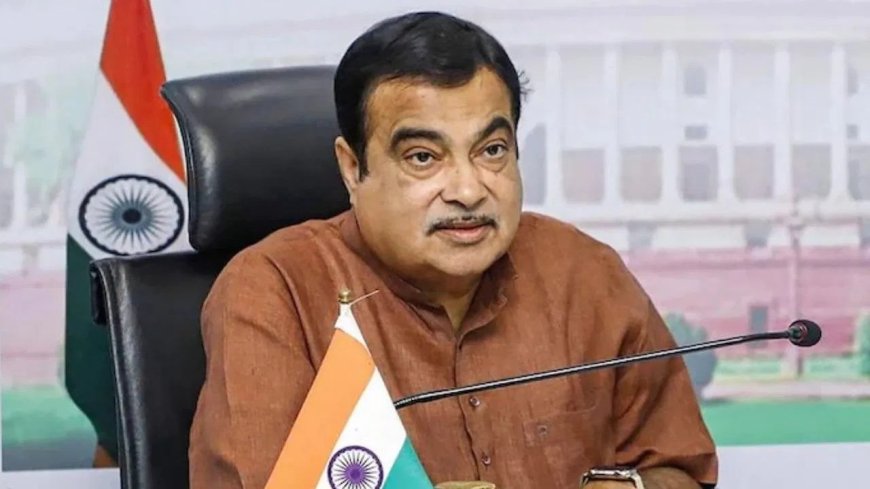Nitin Gadkari Slams Petrol Lobby's Paid Assault on E20 Fuel
Nitin Gadkari slams petrol lobby’s paid attack on E20 fuel, pushing India’s ethanol mission for cleaner energy, farmers’ growth & less imports.

Introduction
In recent times, India has been making bold moves toward alternative and sustainable energy sources. Union Minister for Road Transport and Highways, Nitin Gadkari, has been at the forefront of this transformation. His strong advocacy for E20 fuel—a blend of 20% ethanol and 80% petrol—has not only gained public attention but also drawn opposition from powerful petrol lobbies. Recently, Gadkari openly criticized what he described as a “paid assault” on E20 fuel, raising critical questions about vested interests and the future of India’s clean energy transition.
Historical Background of Ethanol Blending in India
India’s ethanol blending program began in the early 2000s with the aim of reducing dependence on crude oil imports, cutting down carbon emissions, and supporting the agricultural economy. Initially, the government started with E5 fuel (5% ethanol and 95% petrol). Over the years, the target gradually increased to E10 and eventually moved towards E20, which is now being rolled out in various parts of the country.
The push for ethanol is also linked to India’s commitment to the Paris Climate Agreement, where reducing greenhouse gas emissions and promoting biofuels form a key part of the strategy.
Why Nitin Gadkari Slammed the Petrol Lobby
Nitin Gadkari’s remarks stem from the belief that petrol lobbies—which benefit from traditional fossil fuel consumption—are funding campaigns to discredit E20 fuel. According to him, these vested interests spread misinformation about the disadvantages of ethanol blends, such as potential damage to engines, reduced efficiency, or high costs.
The real reason, however, lies in the fact that increased ethanol use would:
-
Cut down petrol demand significantly.
-
Reduce profits for oil companies and petrol dealers.
-
Shift market dominance toward farmers and biofuel producers.
Gadkari’s Vision, Purpose, and Implementation Plan
Gadkari has consistently emphasized three main goals for ethanol blending:
-
Reducing Import Dependency – India spends billions of dollars annually on crude oil imports. Ethanol blending can reduce this burden.
-
Boosting Farmers’ Income – Ethanol is largely produced from sugarcane, maize, and other agricultural waste. Farmers benefit directly from this demand.
-
Environmental Benefits – E20 fuel reduces greenhouse gas emissions by nearly 20%, making it a cleaner alternative to pure petrol.
The government has set an ambitious target of achieving 20% ethanol blending by 2025, and Gadkari is keen on making this shift successful.
Key Points of the Debate
-
Petrol Lobby’s Claims: Engine damage, higher costs, reduced mileage.
-
Government’s Counter: Modern vehicles are already being designed to run on E20 without problems. Car manufacturers like Maruti Suzuki and Honda have rolled out compatible models.
-
Public Concerns: Availability of E20 fuel nationwide and pricing strategy.
Advantages of E20 Fuel
-
Economic: Saves foreign exchange by reducing oil imports.
-
Agricultural: Creates a new market for farmers, particularly sugarcane growers.
-
Environmental: Lower carbon emissions and air pollution.
-
Energy Security: Moves India towards self-reliance in energy.
Disadvantages and Drawbacks
-
Compatibility Issues: Older vehicles may face wear and tear if not E20-compatible.
-
Production Challenge: Ethanol supply needs to be scaled up massively.
-
Water Usage: Sugarcane cultivation requires large amounts of water, raising sustainability concerns.
-
Initial Cost: Setting up ethanol plants and infrastructure involves high investment.
Significance of Gadkari’s Stand
Nitin Gadkari’s strong words against the petrol lobby highlight an ongoing battle between sustainable energy transition and entrenched fossil fuel interests. His stance is not only political but also symbolic of India’s broader ambition to lead in renewable energy adoption.
Latest Updates
-
E20 fuel is already available at select petrol pumps in several states.
-
Automakers are releasing E20-compatible vehicles in compliance with the government’s roadmap.
-
The government is exploring second-generation ethanol, produced from agricultural residues like rice straw, to reduce dependence on water-intensive crops.
Final Thoughts & Conclusion
Nitin Gadkari’s confrontation with the petrol lobby underscores the challenges of change. On one side, there are short-term business interests of the fossil fuel sector, and on the other, there lies the long-term vision of energy security, environmental sustainability, and farmer welfare.
While E20 fuel has its drawbacks, the advantages outweigh the negatives if implemented with the right policies. The real challenge will be ensuring smooth vehicle compatibility, boosting ethanol production sustainably, and managing the political resistance from powerful oil lobbies.
In conclusion, Gadkari’s stand represents a decisive push towards clean energy in India. The debate around E20 fuel is not just about petrol versus ethanol—it is about India’s future energy independence, farmer prosperity, and climate responsibility.

 Ellofacts
Ellofacts 





